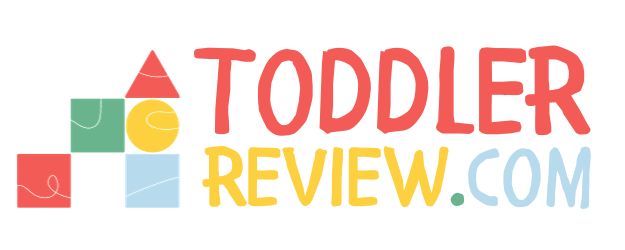How to help your child start to speak
Learning to talk is a natural process for your baby. Language development is a process starting early in life. Incredibly babies start life without knowing a language, but by 10 months, babies can start to distinguish speech sounds and engage in baby talk.
Amazingly your baby starts the process of language development right from birth by hearing sounds and different voices. Typically, infants develop receptive language abilities (the process of understanding language) before their verbal or expressive language develops.
There are lots of ways you can encourage speech development, some of which you may already be doing without realising it.
Why is it important to help with speech and language development?
Language skills in the early years can help promote social skills and interaction with others.
Good speech development will help with reading skills and readiness for pre-school and nursery.
Good language skills will help your little one ask for help, share, ask questions and express their feelings, which will help prevent behaviour problems.
How can I help my baby talk?
Your baby will listen to the sounds of your voice. Babies will make sounds we know as he/she tries to mimic your voice. You can encourage eye contact and mimic sounds back to encourage speech.
Babies can be encouraged in lots of ways including looking at picture books together and singing nursery rhymes. This all help prevent language delays in future years.
Even though your baby wont be able to understand your words, they will love to hear your voice and smile. In fact, research has shown that babbling in baby talk is vital to help with speech development.
By responding to your child’s babbling you are opening up the line of communication, you’re taking an interest in your child. Talking and communication is a two-way process, of listening, digesting, asking questions back, and responding. This will also improve your infant’s confidence in talking and making sounds and encourage talking.
It’s also just as important that your baby has some quiet time so they can babble and play quietly, this all helps your baby learn.
From 3 to 6 Months
There are lots of things you can do to help your child’s speech development. At this age, your baby will be learning how simple words and sounds. You can help your baby by talking to them and looking at them in the eyes. You can encourage your child’s language skills by repeating back sounds, imitating sounds and holding your baby close whilst you talk to them
Many babies will continue to babble and make sounds is typical baby talk before they say their first word. You can continue with your parenting communication skills and start talking to your baby from day one. Most parents love to talk to their baby and children.
Encourage more words using expressive language and singing nursery rhymes to help your baby talk back to you. Each day, your baby listens to you and continues to learn to talk.
How can I encourage my toddler to talk?
By the age of around 2 your toddler should know a wide number of words and their language skills will be developing as they start learning to talk.
You can encourage your child’s vocabulary a number of ways:
Repeat words back to your toddler: “Yes, you can have a drink, here is your cup”.
Encourage talking by playing with their toys. You can describe colours, textures and sounds as you are playing to encourage your babies speech and language.
Keep encouraging singing to rhyming songs such as Pat a Cake and play peek a boo. Your little one will love the repetitive nature of the songs, with words and sounds becoming familiar. Your child’s attention will be focused on your songs and games and they are more likely to join in with expected words and sounds.
Bathtime offers the perfect opportunity to encourage talking in a relaxed manner. You can also blow bubbles which help with oral muscles and language development.
Get older children to play and talk to your baby. Older children and say simple words which help your baby learn simple commands and start to follow directions.
What should I do if I can’t understand my toddler?
There are speech milestones your toddler should reach. But if your toddler is struggling with simple words or expressive language there are things you can do.
Don’t tell your child off if they are struggling with their speech. Just calmly repeat back the word, in the correct form.
They will soon learn the correct way to pronounce certain words. Talk in short sentences. Singing songs with repetitive phrases and words may help your toddler’s confidence with knowing what words and sounds are coming up.
Point and learn about toys, such as a new toy car or point and learn at your body parts – such as ‘Point to Tommy’s nose….. and now show me Tommy’s feet’.
Many babies and young toddlers will love to play games with you and children learn best when they are happy and relaxed.
How do I know if my child has a language problem?
Children develop differently and speech and language are no different. Here are some indicators that may indicate your toddler could have some delay with their language skills:
Your child may have delayed speech and not struggling to put words together into simple sentences.
Your toddler may only know a few sounds, words, or use short phrases.
Your toddler may not be easily understood, perhaps her words are not clear.
Your child does not interact socially starting in infancy
Keep praising your son/daughter during the toddler years and encourage speech with songs, books and playing. Try to limit screen time to increase the interaction your little one has with other people and toys & books.
What is the difference between a speech and a language problem?
Although often joined together, a speech problem and a language issue are two separate factors.
A health visitor or Speech and Language Specialist (SLP) can help define and work on helping your baby learn to talk.
A child with a language delay might say words well but only be able to put two words together.
A child with a speech delay might use words and phrases to express ideas but they could be hard to understand.
What Causes Speech or Language Delays?
A speech delay might be due to:
-
an oral impairment, like problems with the tongue or palate (the roof of the mouth)
-
a short frenulum (the fold beneath the tongue), which can limit tongue movement
Many kids with speech delays have oral–motor problems. These happen when there’s a problem in the areas of the brain responsible for speech. This makes it hard to coordinate the lips, tongue, and jaw to make speech sounds. These kids also might have other oral-motor problems, such as feeding problems.
Hearing problems also can affect speech.
So an audiologist should test a child’s hearing whenever there’s a speech concern. Kids who have trouble hearing may have trouble saying, understanding, imitating, and using language. How Are Speech or Language Delays Diagnosed?
If you think your child might have a problem, it’s important to see a speech-language therapist (SLT) right away. You can find a speech-language pathologist on your own, or ask your health care provider to refer you to one.
The SLT (or speech therapist) will check your child’s speech and language skills. The therapist will do standardized tests and look for milestones in speech and language development.
The SLT also will check:
-
Receptive language – what your child understands.
-
Expressive language – what your child can say.
-
Sound development and clarity of speech
-
They will check your child’s oral–motor status (how the mouth, tongue, palate, etc. work together for speech as well as eating and swallowing)
Ideas to try at home to help your child’s speech development.
-
Ask open-ended questions that helps them develop their own ideas and learn to express them. Try to avoid questions where your child could answer just ‘yes or no’.
-
Ask your child to tell you their favourite story, repeating back sounds or words they have heard.
-
Try blowing bubbles – the action will help exercise your child’s mouth muscles which then help with speech.
-
Have fun making quiet sounds and then loud sounds. Whisper words and then say them loud. The different noises all help your child speech pattern and pick up on sounds.
-
Teach your child simple songs and nursery rhymes. Read to your child. Ask him to point to and tell you what he sees.
-
Encourage your child to talk to friends and family. He can tell them about a new toy.
-
Engage your child in pretend play. You can talk on a play phone, feed the dolls, or have a party with the toy animals.
Verbal games encourage speech development.
Encourage language development with some easy and fun games to play at home.
Secret Whispers
Sit in a circle and one person starts to whisper a phrase or sentence to the person next to them. Each person takes it, in turn, to pass on that message, whispering as they go. This game helps with hearing and speech development.
Tongue Twisters
Try repeating well-known tongue twisters such as Peter Piper, or make up your own.
I spy
This game is perfect to play at home or on the go. It helps increase vocabulary and expressive language. You can refer to items being ‘up high’ certain colours, big, large or even describe textures.
Sound tennis
Take it in turns to say a word beginning with a particular letter such as ‘R’ . Keep going until you have run out of ideas.
Rhyming tennis
Similar to above but use rhyming words. Keep batting back and forth with words that rhyme for as long as possible. Use cat, bat, hat, sat etc.
The ‘What’s better?’ game –
Play a silly game of asking what is better between two items, for example –
“What’s better – grapes or apple?”
“Apple”
“What’s better – Apple or cheese?”
“Cheese”
‘I went to the market….’
A game that helps with memory skills and word building. Keep building your list with ‘I went to the market and bought some bread/cheese/flowers/a pig/a smelly sock. Be as silly as you want.
‘Who am I?’
A fun guessing game to help with word building – guess ‘who am I’ – your little one can ask questions to try and guess who you are – are you an astronaut? do you wear a uniform? Do you work with animals? Are you a vet?

